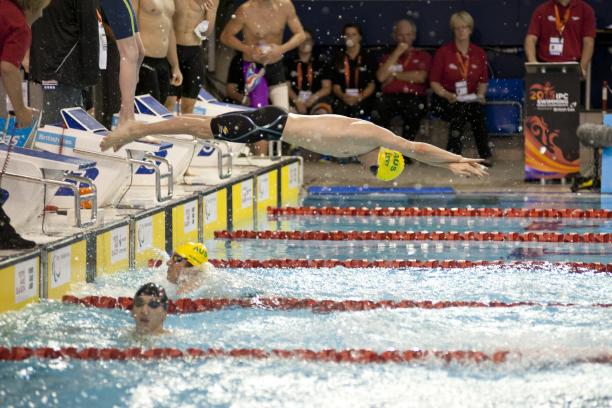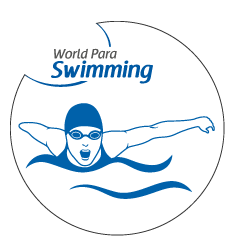Swimming classification review group meets for first time
09.03.2016The gathering of athletes, researchers, classifiers and representatives of IPC Swimming is the first since a review into the physical impairment classification system was announced.
 Athletes competing in the Men's 4x100m Medley Relay 34 PTS at the 2015 IPC Swimming World Championships in Glasgow
© • Luc Percival Photography
Athletes competing in the Men's 4x100m Medley Relay 34 PTS at the 2015 IPC Swimming World Championships in Glasgow
© • Luc Percival Photography
“We’ve got a lot better clarity now about what is expected of us and how we can contribute to the classification process,”
Researchers, classifiers, athletes, coaches and representatives of IPC Swimming met for the first time in February in Bonn, Germany, to discuss planning for the sport’s recently announced review of the classification system for athletes with a physical impairment.
The inaugural meeting of the IPC Swimming Classification Research Group covered the parameters of research into range of movement, co-ordination, drag and propulsion in physical impairment, as well as the project timelines.
The results of the physical impairment research aims to provide an evidence base for improvements to the IPC Swimming classification system. As the outcomes of the research are currently unknown, the group decided that the timelines for any changes prior to 2018 will be decided as results become available.
Peter Van de Vliet, the IPC’s Medical and Scientific Director, said: “We had a highly productive two days of meetings in Bonn and it was a great starting point to have so many different views and perspectives in one room.
“The meeting built upon the success of previous IPC Swimming classification expert meetings, and we are pleased to have now secured the resources to carry the classification review process forward.
“Key to the success of this review is the participation and support of National Paralympic Committees and National Federations who are all in agreement that the swimming classification system can be improved.
“We need their support in the research and in various other areas including athlete participation, financial contributions and venues for data collection to develop a stronger and more understandable system.”
Liz Johnson, a British Paralympic and world champion in S6 and SB6 events, is one of two athletes on the group.
“Paralympic swimming has always been one of the leaders in the whole classification system; the sport was one of the first to come up with a functional classification system that worked. However, that was almost 30 years ago and was designed with specific impairments in mind. It’s now time to develop a new, more robust and transparent system,” she said.
“During the two days a lot of ideas were bounced around and I think we now have a clear way forward. We know it’s not as simple as ‘here’s a few ideas, here’s a new system.’ It’s a long process because the fundamental thing that is required is research. The more information we have, the more accurate system we can come up with for the benefit of all.”
IPC Swimming formally engaged two para-swimming research experts to lead the project. During the meeting, Dr. Carl Payton (Manchester Metropolitan University) presented proposals around the importance of active and passive drag in swimming performance and how this research could be carried out. Professor Brendan Burkett (University of the Sunshine Coast) discussed the complexity of evaluating range of movement and propulsion and the different ways this could be addressed. Professor Burkett also presented on co-ordination, and the development of tests specific to swimming which are not affected by the level of training an athlete has.
“We’ve got a lot better clarity now about what is expected of us and how we can contribute to the classification process,” Payton said
Burkett commented: “There’s definitely a clearer direction. We need now to consult further with a wider group. The next steps will be finalising some specific organisational and logistical aspects of the projects.”
The group also discussed the significant importance of including a wide range of athletes at varying stages in their careers. This includes those who have competed at the highest level as well as those at the start of their training.
Jane Blaine, Chairperson of IPC Swimming’s Sport Technical Committee, was enthusiastic about the meeting:
“We had some very good discussions, and put a lot of things on the table,” Blaine said. “We had a very good balance of athlete, coach, classifier and researcher input and have given a lot of positive input to the researchers who came to the table with a very open mind. We are really looking forward to what they are able to produce.
“We have a couple of things that other groups are able to do as well. We are looking for countries, athlete participation and National Paralympic Committees to help to ensure that the research happens.
“We have a plan in particular in good detail for the next year, with the hiring of the post-doc students and what we are going to initiate and report systematically to the para-swimming community.
More information and regular updates will be provided at the IPC Swimming website during the review.





















